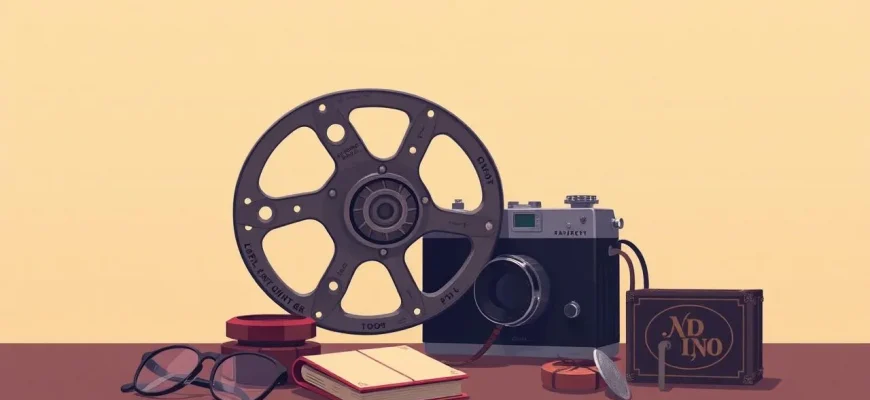The Soviet Union produced a rich tapestry of films, many of which explored themes of ambition, aspiration, and the pursuit of dreams. This collection of 10 Soviet films delves into the complexities of ambition, showcasing how individuals navigate their desires within the constraints of society, politics, and personal ethics. These films not only entertain but also offer a profound look into the human condition, making them timeless pieces of cinema that resonate with audiences today.
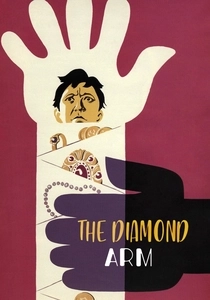
The Diamond Arm (1969)
Description: While primarily a comedy, this film subtly explores ambition through the character of Semyon Gorbunkov, who inadvertently becomes involved in a smuggling operation, showcasing his ambition to protect his family.
Fact: The film is one of the most popular Soviet comedies, and its catchphrases are still widely recognized in Russia.
 Watch Now
Watch Now 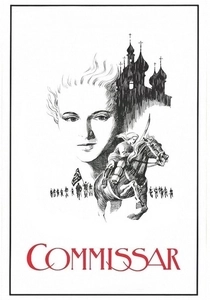
The Commissar (1967)
Description: Set during the Russian Civil War, this film explores the personal ambitions of a female commissar who must reconcile her revolutionary duties with her maternal instincts.
Fact: The film was banned in the Soviet Union for 20 years due to its critical portrayal of the Red Army.
 Watch Now
Watch Now 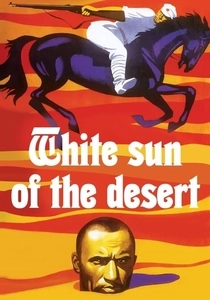
The White Sun of the Desert (1970)
Description: This adventure film set in Central Asia after the Russian Civil War showcases the ambitions of a Red Army soldier to bring peace to a remote region, highlighting themes of duty and personal ambition.
Fact: It's considered one of the greatest Soviet adventure films, and its theme song is iconic in Russian culture.
 Watch Now
Watch Now 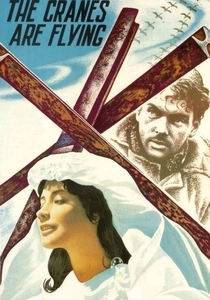
The Cranes Are Flying (1957)
Description: This poignant war drama tells the story of Veronika, whose fiancé goes off to fight, leaving her to face the challenges of life alone, showcasing her ambition to remain loyal and hopeful.
Fact: The film was one of the first Soviet films to be widely distributed in the West and won the Palme d'Or at the Cannes Film Festival.
 30 Days Free
30 Days Free 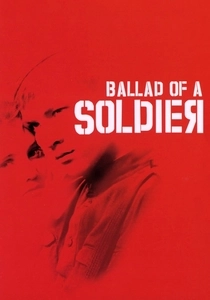
The Ballad of a Soldier (1959)
Description: This war drama tells the story of a young soldier's brief leave to visit his mother, highlighting his ambition to fulfill a simple yet profound personal mission amidst the chaos of war.
Fact: The film was nominated for an Academy Award for Best Original Screenplay.
 30 Days Free
30 Days Free 
The Ascent (1977)
Description: Set during World War II, this film follows two Soviet partisans on a mission that tests their moral and physical endurance, highlighting their ambition to survive and fulfill their duty.
Fact: The film was directed by Larisa Shepitko, who tragically died in a car accident shortly after its release. It won the Golden Bear at the Berlin International Film Festival.
 30 Days Free
30 Days Free 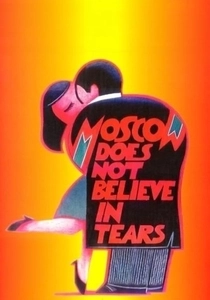
Moscow Does Not Believe in Tears (1980)
Description: This film follows three women over several decades, focusing on their ambitions in love, career, and personal growth, offering a nuanced look at ambition in Soviet society.
Fact: It won the Academy Award for Best Foreign Language Film, becoming one of the few Soviet films to achieve this honor.
 30 Days Free
30 Days Free 
The Irony of Fate (1975)
Description: This romantic comedy-drama explores the ambitions of two individuals whose lives intersect due to a mix-up, highlighting their personal aspirations and the unexpected paths life can take.
Fact: It's a New Year's Eve tradition in Russia to watch this film, and it has been remade several times.
 30 Days Free
30 Days Free 
The Garage (1979)
Description: A satirical look at Soviet bureaucracy, the film showcases the lengths to which people will go to achieve their ambitions, even if it's just for a parking space.
Fact: The film was directed by Eldar Ryazanov, known for his comedic takes on Soviet life.
 30 Days Free
30 Days Free 
The Mirror (1975)
Description: Andrei Tarkovsky's semi-autobiographical film delves into the ambitions of a man reflecting on his life, his mother, and the Soviet era, blending personal and national ambitions.
Fact: The film is known for its non-linear narrative and poetic imagery, making it one of Tarkovsky's most personal works.
 30 Days Free
30 Days Free 
